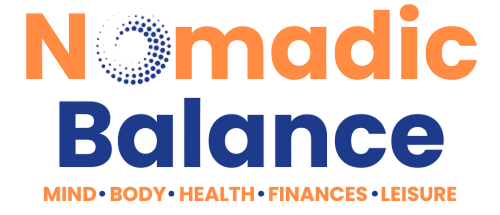The supplement industry is booming, with countless products promising better health, improved performance, and faster recovery. But do you really need supplements, or are they just a waste of money? The truth is that supplementation can be beneficial, but only when used correctly and in combination with a balanced diet and healthy lifestyle.
In this guide, we’ll explore the pros and cons of supplementation, which supplements are truly effective, and how to determine if you need them.
1. Understanding Supplements: What Are They?
Supplements are products designed to provide nutrients that may be missing or insufficient in your diet. They come in various forms, including pills, powders, and liquids.
The most common types of supplements include:
- Vitamins and minerals (e.g., vitamin D, magnesium, iron)
- Protein supplements (e.g., whey, casein, plant-based protein)
- Amino acids (e.g., BCAAs, glutamine)
- Herbal supplements (e.g., ashwagandha, turmeric, ginseng)
- Performance enhancers (e.g., creatine, beta-alanine)
While some supplements offer real benefits, others have little scientific support.
2. When Supplements Are Worth It
Not everyone needs supplements, but they can be helpful in specific situations. Here’s when they might be worth considering:
a) Nutrient Deficiencies
If you’re deficient in a particular vitamin or mineral, supplementation can help restore optimal levels. Common deficiencies include:
- Vitamin D – Important for bone health and immune function; often lacking in people with limited sun exposure.
- Iron – Essential for oxygen transport; common in women and vegetarians.
- Magnesium – Supports muscle and nerve function; many people don’t get enough from their diet.
b) Increased Nutritional Needs
Certain groups may need more nutrients than they can get from food alone, including:
- Athletes – Higher protein and electrolyte needs due to intense training.
- Pregnant Women – Folic acid, iron, and calcium are crucial during pregnancy.
- Elderly Individuals – May require more vitamin B12 and calcium.
c) Convenience for Busy Lifestyles
If your schedule makes it difficult to prepare nutritious meals, supplements like protein powders, meal replacements, and multivitamins can help fill the gaps.
d) Enhancing Athletic Performance
Some supplements are scientifically proven to improve exercise performance, such as:
- Creatine – Increases strength and power in high-intensity exercise.
- Caffeine – Boosts alertness and endurance.
- Beta-Alanine – Reduces muscle fatigue during intense workouts.
3. When Supplements Are Not Necessary
Supplements are often unnecessary if you maintain a well-balanced diet. Here are cases where they might not be worth it:
- If You Already Get Enough Nutrients from Food: Whole foods provide a complex mix of vitamins, minerals, and fiber that supplements can’t fully replicate.
- If the Supplement Lacks Scientific Support: Many products make bold claims without strong research backing them. Be skeptical of “miracle” supplements.
- If It Causes Unwanted Side Effects: Some supplements can lead to digestive issues, headaches, or even toxicity when taken in excess.
- If It’s Too Expensive: Some supplements are overpriced and offer little added benefit compared to food sources.
4. Common Myths About Supplements
There are many misconceptions about supplementation. Let’s debunk a few:
Myth #1: More Is Always Better
Taking high doses of vitamins or protein doesn’t necessarily lead to better results. In some cases, excessive intake can be harmful (e.g., too much vitamin A can be toxic).
Myth #2: Supplements Can Replace a Healthy Diet
No supplement can fully replace the benefits of a well-rounded diet rich in whole foods.
Myth #3: Natural Supplements Are Always Safe
Just because a supplement is “natural” doesn’t mean it’s safe or effective. Some herbal supplements can interact with medications or cause side effects.
Myth #4: All Supplements Are the Same
Not all supplements have the same quality. Some contain fillers, contaminants, or inaccurate ingredient labels. Choosing reputable brands is crucial.
5. How to Choose the Right Supplements
If you decide to take supplements, follow these tips to ensure you’re getting quality products:
- Check for Third-Party Testing: Look for certifications from organizations like NSF, USP, or Informed-Choice.
- Read the Ingredients List: Avoid products with unnecessary fillers or artificial additives.
- Consider Your Specific Needs: Choose supplements based on your lifestyle, diet, and health goals.
- Consult a Healthcare Professional: Before starting any supplement, talk to a doctor or nutritionist to ensure it’s right for you.
Conclusion: Should You Take Supplements?
Supplements can be a useful tool, but they are not a magic solution. The key to good health lies in a balanced diet, regular exercise, and a healthy lifestyle. If you have a deficiency or specific nutritional needs, the right supplements can help. However, for most people, focusing on whole foods should be the priority.
Before spending money on supplements, do your research, choose wisely, and always aim for a well-rounded approach to health and wellness.

